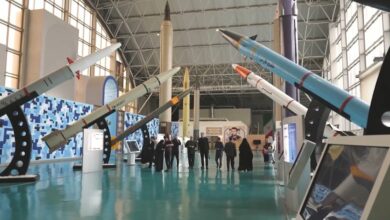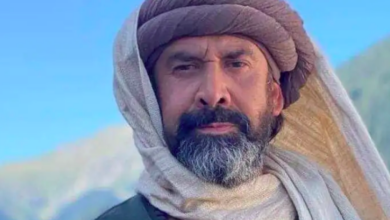As the Obama administration enters its second year, we’re witnessing yet another flurry of American diplomatic activity in the Middle East.
But this time, it’s a little different. Unlike last year’s US push for renewed Israeli-Palestinian peace talks (a push that has basically stalled amid widespread Arab frustration), this time Iran is topping the US agenda.
Iranian President Mahmoud Ahmadinejad recently announced that his country is now capable of producing high-quality enriched uranium, but said that Iran has no desire to create nuclear weapons and wants atomic power only for electricity and research.
Now, as the US pushes for another round of harsh United Nations sanctions against Tehran, the administration is seeking to rally Arab support.
On Valentine’s Day, Admiral Mike Mullen, chairman of the Joint Chiefs of Staff, met in Cairo with President Hosni Mubarak as part of a multi-stop regional tour that included Israel, Jordan, Saudi Arabia and the United Arab Emirates. Mullen told reporters afterwards that the Iranian threat was the “principle topic” of his discussion with Mubarak.
At his next stop in Tel Aviv, Mullen called Iran “an incredibly destabilizing country,” and added, "I am still hopeful that diplomacy and sanctions and dialogue will achieve a solution that doesn’t result in an outbreak of war and doesn’t result in an outcome where Iran achieves nuclear capability."
That same week, Secretary of State Hillary Clinton launched her own parallel Arab world tour, which included giving a speech before the U.S.-Islamic World Forum in Qatar. Clinton issued her harshest criticisms to date of the Islamic republic. At a town hall meeting with Qatari college students, Clinton said Iran was “moving toward a military dictatorship."
To a certain extent, the administration’s push to curb Iran’s nuclear ambitions could gain some traction in the Arab world, particularly in the Sunni-dominated Gulf states who have long feared the encroachment of revolutionary Shiite ideology. Saudi Arabia in particular has long struggled to control a disgruntled Shiite minority in its eastern provinces, while in Bahrain, a minority Sunni royal family controls a state that is majority Shiite.
Clinton, during her recent Middle East tour, sought to touch on those common fears, saying, "We will always defend ourselves, and we always will defend our friends and allies, and we will certainly defend countries in the Gulf who face the greatest, immediate nearby threat from Iran."
Even Egypt, which faces no plausible physical threat from Iran, doesn’t necessarily relish the thought of a nuclear-armed Tehran throwing its regional weight around.
“Iran is an Islamic country like Egypt, but they do have a very different ideology,” said Mohamed Bassiouny, member of the parliament’s Shura Council and former Egyptian ambassador to Israel.
But Bassiouny said he didn’t expect Egypt to stand as strongly against Iran as the Obama administration would probably hope. “There is no need to create an enemy,” he said. “If Iran doesn’t interfere in our domestic affairs, we shouldn’t interfere in theirs.”
America’s renewed efforts to rally Arab support for an anti-Iran push faces at least one significant obstacle: the failure of the administration to produce any kind of tangible progress on the Israeli-Palestinian front.
Hopes in the Arab World soared when Obama seemed set to make the issue one of the early centerpieces of his new administration. He issued a strong demand for an absolute halt to all Israeli settlement construction in the occupied West Bank and disputed Arab East Jerusalem.
But the initiative quickly fizzled out when Israeli Prime Minister Benjamin Netanyahu essentially called Obama’s bluff. The perceived weakness of the American counter-response caused a loss of credibility in many Arab eyes–credibility that is sorely needed during the current anti-Iran push.
Clinton, in her speech before the U.S.-Islamic World Forum, sought to address those concerns.
"I know people are disappointed that we have not yet achieved a breakthrough,” she said. “But we must remember that neither the United States nor any country can force a solution."
Diaa Rashwan, a political analyst with the Al-Ahram Center for Political and Strategic Studies, said America’s credibility has already been too damaged for the current diplomatic campaign to have much of an effect.
"It’s not just the case for Muslims. A majority of people around the world do not believe American policy," he said. "The new administration is trying not to repeat the mistakes of the former administration but the result is clear: despite some modifications in language still […] this contradiction between words and practice is more and more."
Bassiouny, the former ambassador to Israel, said that Egypt favored making the entire Middle East a nuclear-free zone. But, he added, that means applying the same standard to all countries in the region, “especially including Israel.”
Additional reporting by Andrew Bossone.




